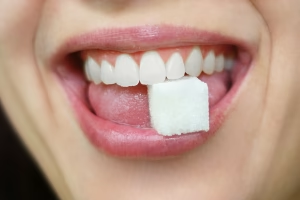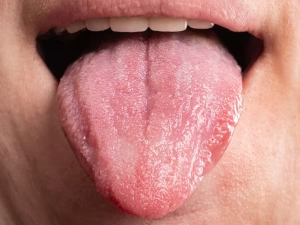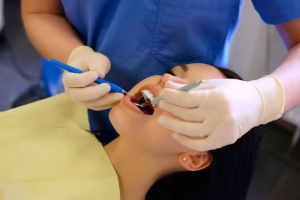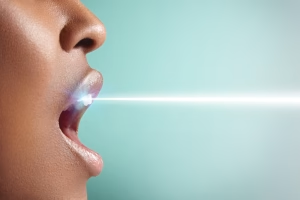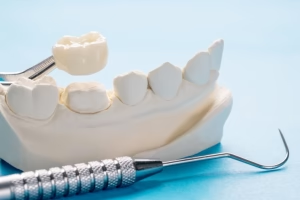A Quick Guide to Overcome Dental Anxiety
20 June 2017
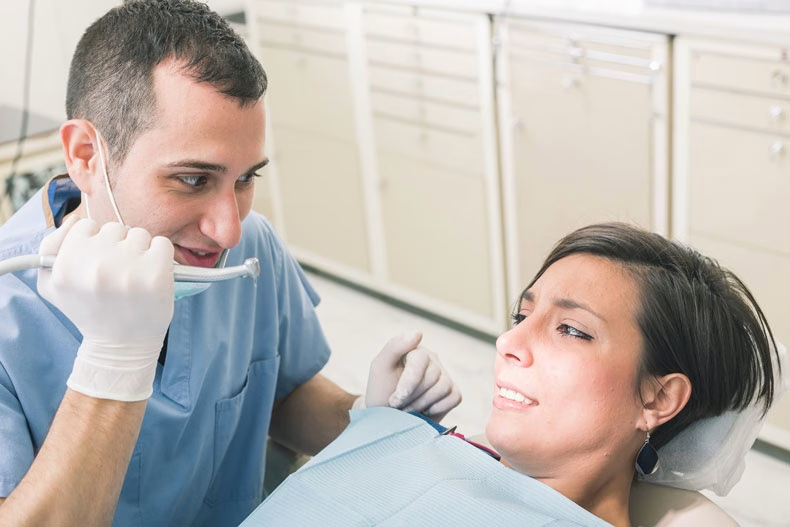
Dental phobia, dentophobia, dental anxiety and dental fear – these are all terms created to describe what many people feel when going to see a dentist. Even if you don’t suffer from an extreme “phobia”, for most people undergoing a dental treatment without the sedation is far from pleasant. Symptoms such as palms sweating, chills, heart pounding and nausea at the very thought of being in the dental chair cause people to skip their dental appointments.
Is there a “cure” for this, or are we all doomed to anxiety every time we go for a dental checkup? It’s a known fact that treating specific phobias can be extremely effective and quick. If you don’t want to see a psychotherapist, there are lots of tips and tricks to help yourself and never miss your dentist appointment again.
Know the causes of your fear
Although most people believe that dental fear is caused by painful experiences, these are not the most important factor in developing it. Certain theories claim that the “root” cause of dental anxiety is the lack of control that patients feel when seated in the dentist’s chair.
When driving by the dentist’s office some people will experience discomfort – similar to one when they have an appointment. It’s important to have in mind that this is an acquired reaction and you can beat it with the power of will.
Choose a dentist you can trust
In Australia, the prevalence of high dental fear ranges from 7.8% to 18.8%. In other words – this is the number of patients who are harder to treat and require a special approach. Regardless of the level of your anxiety, choose a dentist who has good recommendations. How can you recognise if a dentist has the skills to deal with dental fear?
An experienced dentist will make the effort to help you relax. Some will even design their waiting room and office to be stress-free. Instead of posters with diseases depicted on them, you’ll enjoy the pleasant and non-threatening atmosphere. The best choice is a dentist who is patient with you, calm and empathetic.
Learn how to breathe
Once you’ve chosen your dentist and become familiar with the causes of your anxiety, it’s time to move on to fear-reducing tips and tricks. The essential technique you should adopt when overcoming the anxiety is proper breathing. Before leaving home to see the dentist, do some simple breathing exercises.
There are many different techniques, but they all have one rule in common – breathe out slowly to prevent hyperventilation. Here’s an extremely efficient exercise, derived from yoga: alternate nostril breathing. Close one nostril with your finger, breathe through the other one, and then switch sides.
Distraction helps
Feeling a bit nervous just before the treatment is perfectly normal and most of us experience it. Some people will have trouble sleeping the night before the appointment, and some will spend days, even weeks worrying about it. Thankfully, there are some good strategies to divert negative thoughts and help yourself.
Whenever you catch yourself thinking about “horrible things” that await you in the dentist’s chair, try to identify where those negative thoughts are coming from and find a rational explanation for them. You can also seek distraction before and during the treatment by listening to music or thinking about something that makes you happy.
Talk with your dentist
The key to successful coping with your dental fear lies in honest communication with your dentist. Don’t hesitate to discuss your fears with them and remember that a good dentist will be dedicated to making you feel more comfortable. Ask your dentist to explain every step of the treatment before and while performing it.
Also, determine a signal that will show your dentist that you’re in pain and that it’s time to make a break.
Autogenic training can help in the long run
If a simple breathing exercise done at the right time can prevent a panic attack, think of what an entire training can do for you. Autogenic training is a set of visualisation and breathing exercises intended to make your body relaxed.
Common stress, intense fear and anxiety can cause stress-induced psychosomatic disorders which this training can help you with. There are numerous online resources, but it you want the best results, find a group training guided by a certified trainer.
Feel free to come and talk to us any time in our dental clinics in Brisbane and Gold Coast


